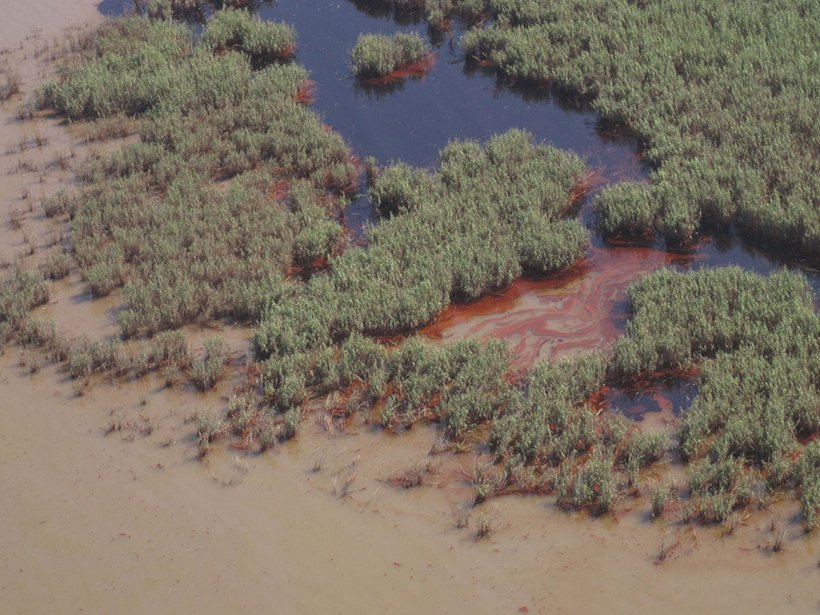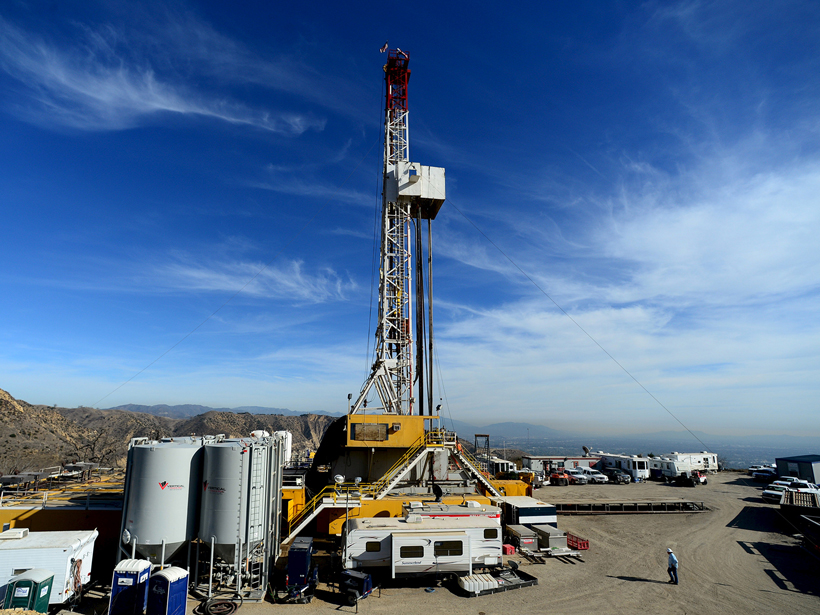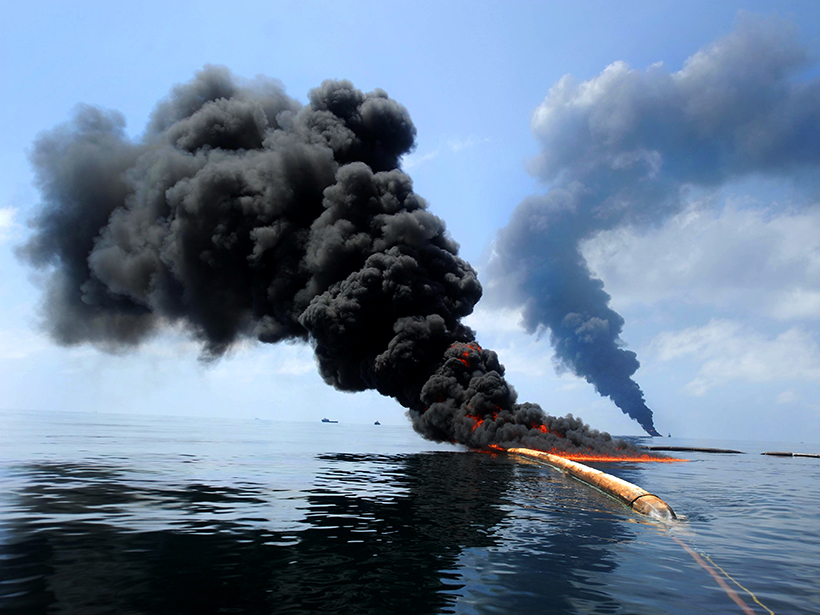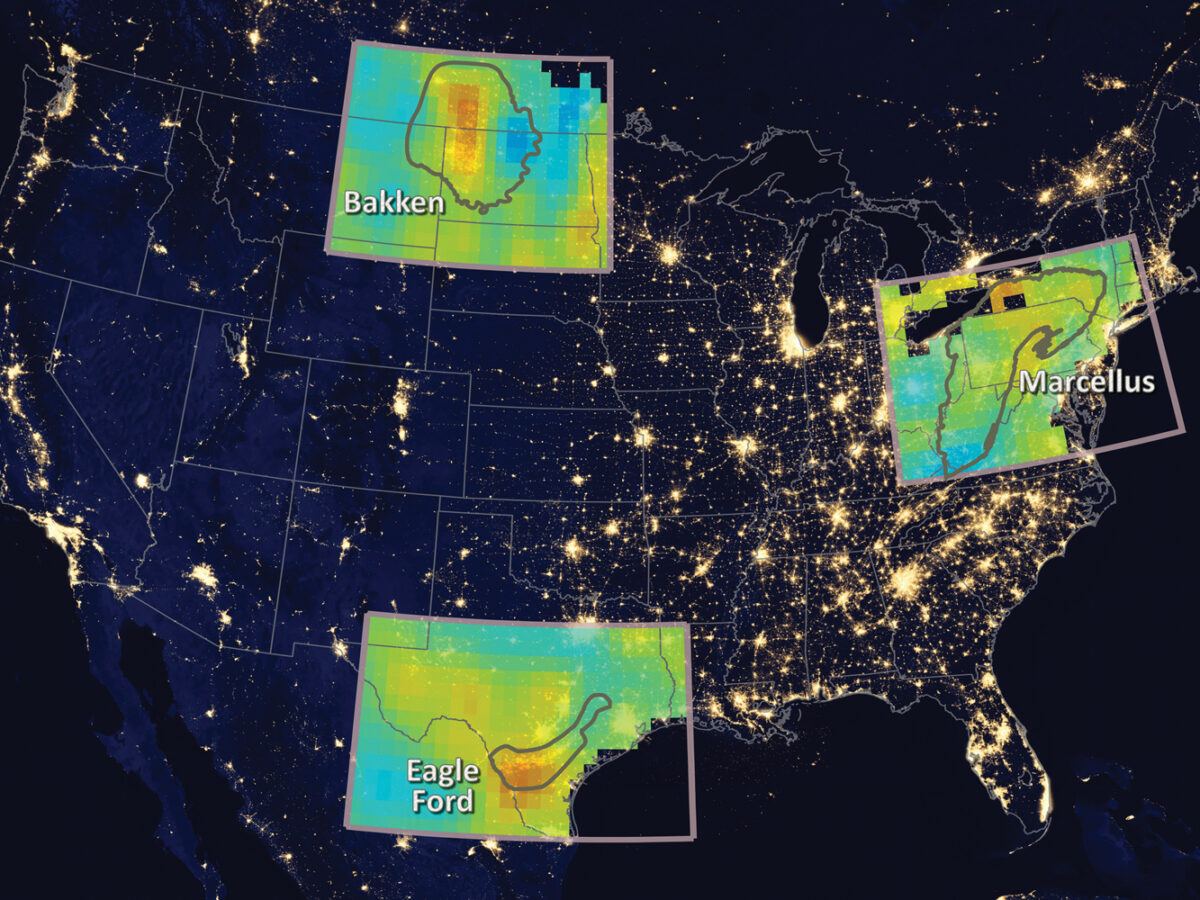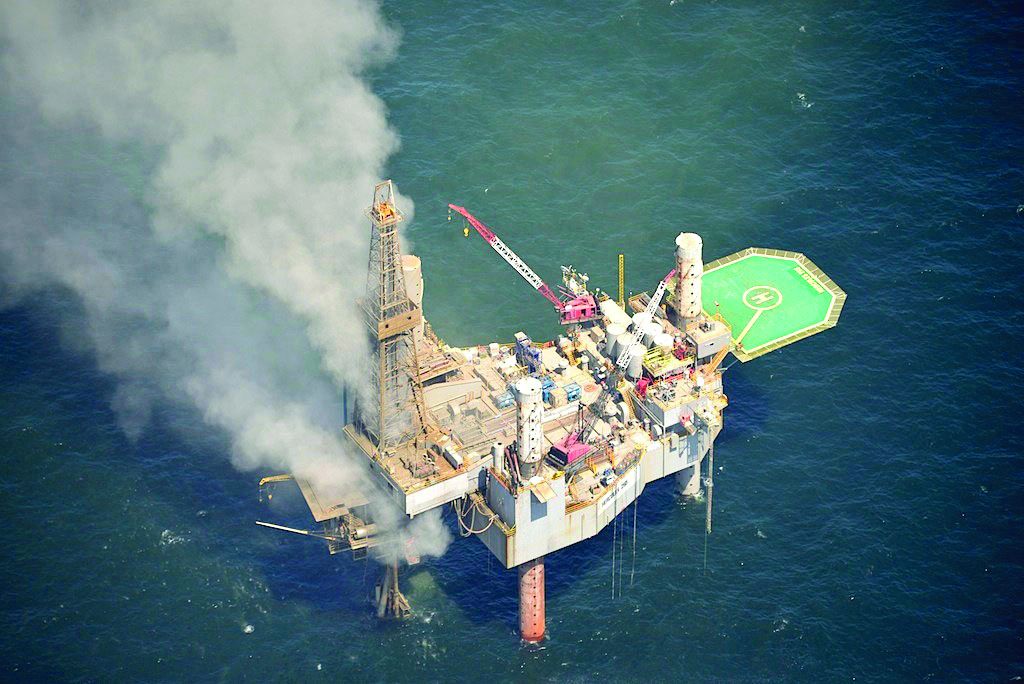A simulation of oil and gas leakage during the Deepwater Horizon disaster finds that the main chemical dispersant used improved air quality for emergency responders.
oil spills
Oil Residues Accelerate Coastal Wetland Losses
Coastal wetland loss after an oil spill can be more extensive than after a hurricane.
Soil Bacteria Could Help Absorb Natural Gas Leaks
For the first time, new research examines the response of terrestrial soil microbes to a massive natural gas blowout and offers hope for new remediation strategies.
The Fate of Hydrocarbons Seeping from the Ocean Floor
Researchers investigate the properties of bubbles at deep-ocean oil seeps to improve oil spill models.
Deepwater Horizon Oil Lingered and Sank, Stuck to "Marine Snow"
A new study may explain how supposedly buoyant oil from the huge 2010 oil spill coated corals and other organisms on the ocean floor.
Call Scientists Before Disaster Strikes
When governments respond to natural disasters, experts with some of the greatest potential to help—scientists—are often missing in action. It's time to change that.
Oil Dispersants Deadly to a Common Estuary Species
Research on two dispersants used to break up spilled oil suggests that the chemicals can kill or harm a widely–found shrimp important to estuary habitats. The toxicity increases in less salty water.
Methane Leaks from Oil and Gas Fields Detected from Space
Methane hot spots were detected in the atmosphere near North Dakota’s Bakken formation and the Eagle Ford formation in Texas after oil and gas production ramped up starting in 2009.
A Rapid Response Study of the Hercules Gas Well Blowout
Following the 23 July 2013 blowout of a gas production in the Gulf of Mexico owned by Hercules Offshore, scientists established a rapid response study to investigate the environmental effects.


